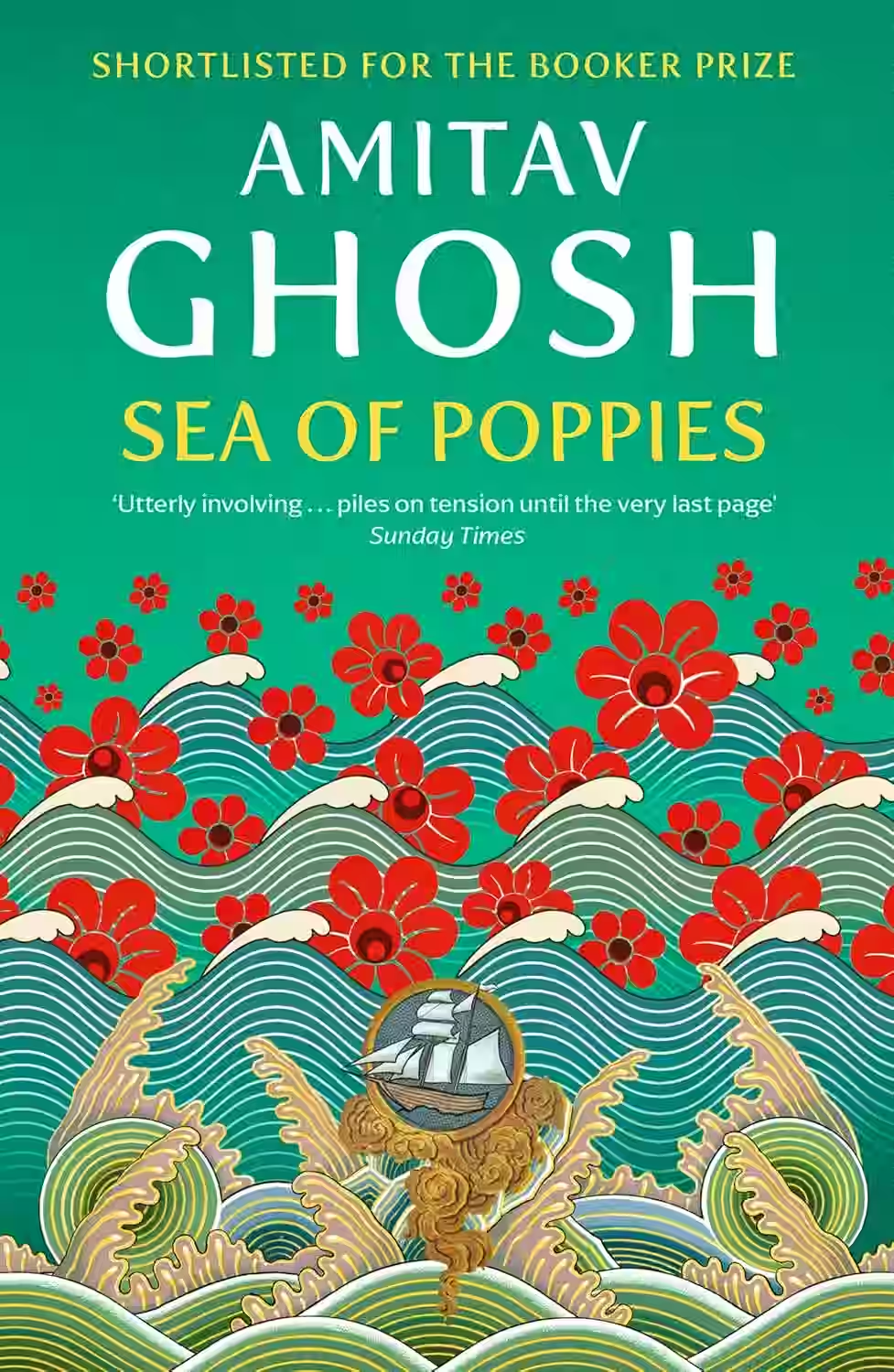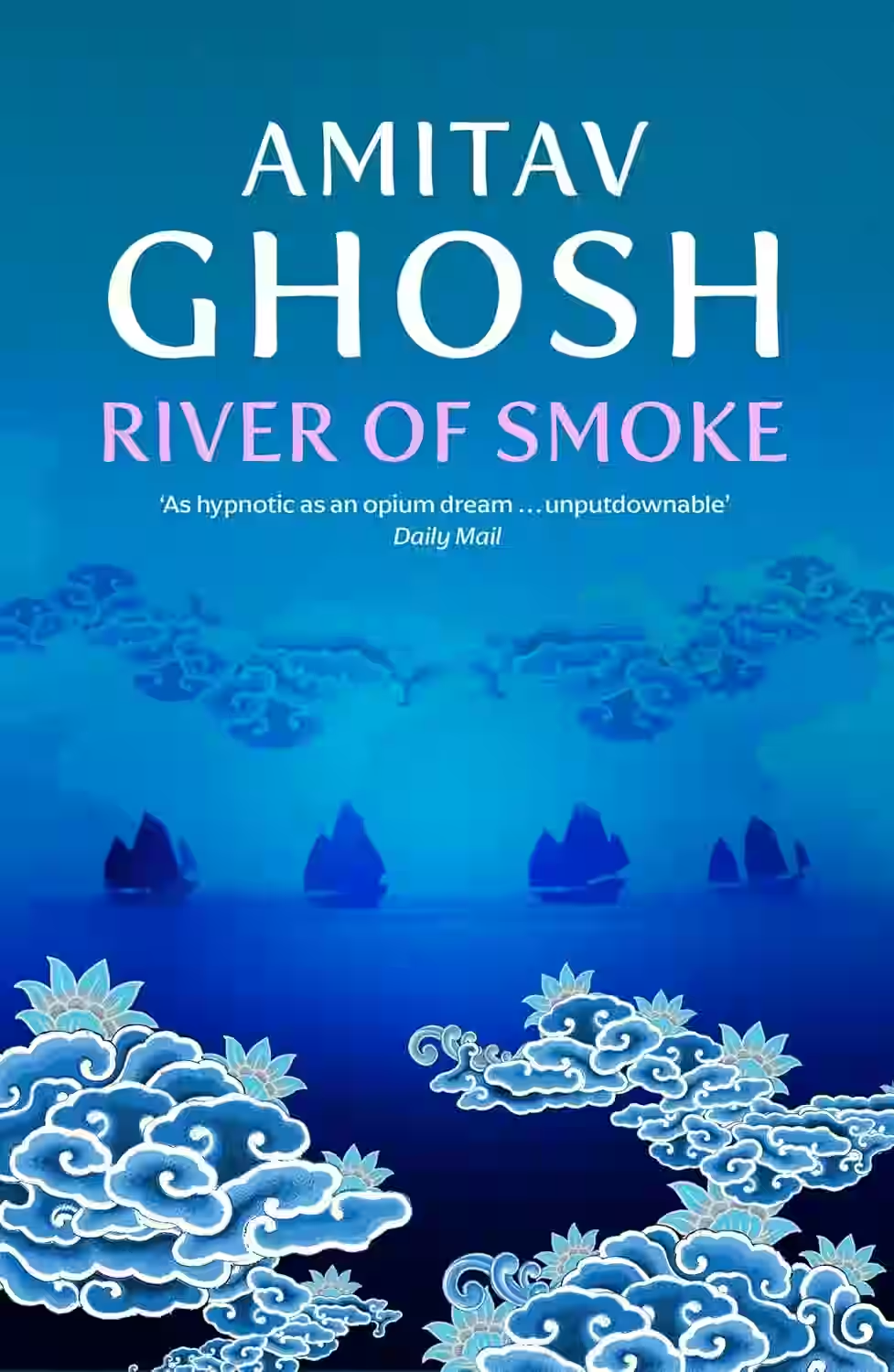The Ibis Trilogy
Spanning the years before and during the First Opium War, The Ibis Trilogy—comprising Sea of Poppies, River of Smoke, and Flood of Fire—follows a diverse cast of characters linked by the opium trade between India and China. Set aboard the Ibis ship and across colonial ports, the series explores global capitalism, migration, imperialism, and identity through vivid storytelling and historical detail. Ghosh’s linguistically rich prose and deeply researched narrative offer a sweeping epic of 19th-century Asia, blending personal stories with grand political and economic shifts that continue to echo in today’s world.

Amitav Ghosh’s Sea of Poppies is the first novel in the Ibis Trilogy, set in the lead-up to the First Opium War. It follows a diverse cast—peasants, coolies, convicts, and colonizers—whose lives converge aboard the Ibis, a ship bound for Mauritius. The novel explores themes of colonialism, caste, identity, and globalization, set against the opium trade in 19th-century India. Written in a polyphonic style with rich linguistic texture, it is a sweeping historical epic that combines political insight with human drama.

The second book in Amitav Ghosh’s Ibis Trilogy, River of Smoke takes readers to 19th-century Canton, on the cusp of the Opium Wars. As East meets West in a bustling trading port, merchants, smugglers, and exiles navigate political intrigue and cultural clashes. The novel weaves multiple storylines—from botanical explorers to opium traders—shedding light on colonialism, global trade, and resistance. Rich in historical detail and multilingual voices, Ghosh paints a vivid portrait of a world on the edge of upheaval.